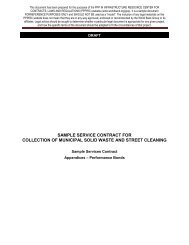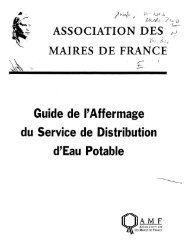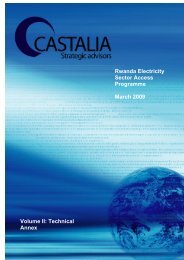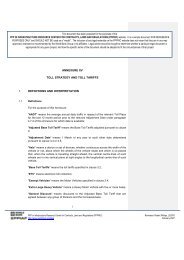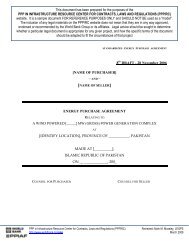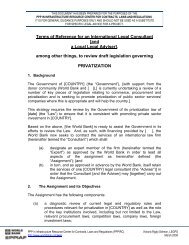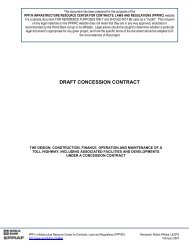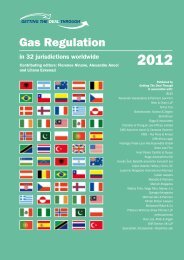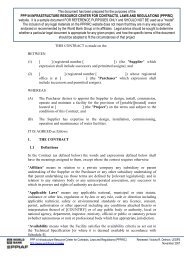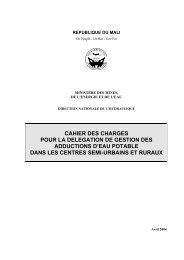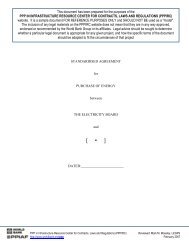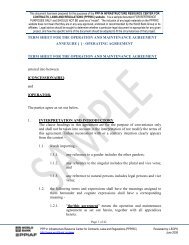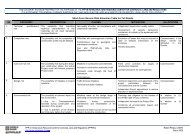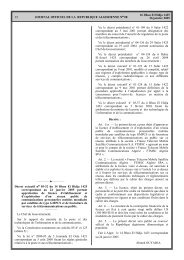Volume I: Investment Prospectus Rwanda Electricity Sector Access ...
Volume I: Investment Prospectus Rwanda Electricity Sector Access ...
Volume I: Investment Prospectus Rwanda Electricity Sector Access ...
- No tags were found...
You also want an ePaper? Increase the reach of your titles
YUMPU automatically turns print PDFs into web optimized ePapers that Google loves.
3.4 Energy <strong>Sector</strong> Legislation and RegulationThe Government has recently enacted a suite of new legislation in the energy sector. The<strong>Electricity</strong> Law governs the supply and distribution of electricity, and the Gas Lawadministers the use of methane gas from Lake Kivu. New laws have also been drafted tocreate the new electricity utility RECO and establish a National Energy DevelopmentAgency (NEDA). These laws complement an existing regulatory framework for <strong>Rwanda</strong>nutilities, and give additional powers and responsibilities to the independent regulator, RURA.The <strong>Electricity</strong> Law reflects a commitment to moving away from Government managedelectricity supply to a system that emphasizes an efficient utility managing transmission anddistribution, while allowing increasing private sector investment in generation. The<strong>Electricity</strong> Law provides that the electricity transmission entity (currently Electrogaz) willhave an exclusive right to transmit electricity, and will also be responsible for operating thesystem.Although the current supply chain in <strong>Rwanda</strong> relies on a single-buyer, Electrogaz, purchasingpower from private plants, the <strong>Electricity</strong> Law also preserves opportunities for further sectorreform when the time is right.The regulator is responsible for issuing licenses to electricity generators, transmission anddistribution entities, and has powers to set tariffs based on the economic costs of servingeach class of customer. The regulator may reallocate costs among customers, provided thatthe tariff-setting methodology is designed to enhance the efficiency of the sector. The<strong>Electricity</strong> Law requires also RURA to consult MININFRA to understand the level ofproposed government subsidies before setting tariffs. The regulatory framework encouragetariffs that allow investors to recover a rate of return on that is comparable to the returnobtained in similar investments.RURA plans to build capacity to assume the additional regulatory responsibilities it has beengranted under the <strong>Electricity</strong> Law. RURA is receiving technical assistance and training underthe ICF-funded “Capacity Building and Transmission Support in the <strong>Rwanda</strong>n Energy<strong>Sector</strong> Project”. Specific areas of capacity building are licensing and concessions, tariffregulation, network access and regional interconnections, advice on power purchaseagreements, and regulatory strategy.13



